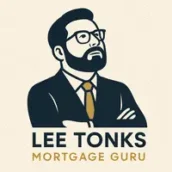
Shared Ownership Mortgages: A Complete Guide
Struggling to get on the property ladder? Shared ownership could be the solution.
Shared ownership mortgages offer a practical alternative for buyers who can’t afford to buy a home outright. Whether you’re a first-time buyer or someone with limited savings, this part-buy, part-rent scheme could help you take that crucial first step onto the property ladder.
What is Shared Ownership?
Shared ownership is a government-backed scheme that lets you buy a share of a property (usually between 10% and 75%) and pay rent on the remaining share to a housing association. Over time, you can increase your ownership percentage through a process called staircasing.
✅ You’ll need a mortgage for the share you’re buying
✅ You’ll pay subsidised rent on the rest
✅ It’s available for new-build homes and some resales
Who is Eligible?
To qualify, you usually need to meet the following criteria:
Your household income is £80,000 or less (£90,000 in London)
You can’t afford to buy a suitable home on the open market
You’re a first-time buyer, a previous homeowner who can’t afford to buy now, or currently in a shared ownership property
You may also be eligible if you’re renting a council or housing association property.
Pros and Cons of Shared Ownership
✅ Pros:
Lower deposit required (based on your share, not full value)
Opportunity to gradually increase your share
A way onto the property ladder sooner
⚠️ Cons:
You’ll still pay rent, service charges and possibly ground rent
Staircasing costs can add up (valuation fees, legal fees, etc.)
Selling later can be more complex, especially if you don’t own 100%
How Does the Mortgage Work?
You’ll need a mortgage for the share you’re buying. Lenders will assess affordability just like they would with a standard mortgage, but they’ll factor in your rent payments too.
The deposit is based on the value of the share you’re purchasing — so if you’re buying 25% of a £200,000 property, you’d need a mortgage and deposit based on £50,000, not the full price.
Not all lenders offer shared ownership mortgages, so using a specialist broker can help you access the right options.
What is Staircasing?
Staircasing allows you to buy more shares of your home in future — even up to 100% if your lease allows it. Each time you staircase, the price is based on a new valuation. The more you own, the less rent you pay.
Keep in mind there will be legal fees, valuation costs, and possibly mortgage fees involved with each stage.
Can You Sell a Shared Ownership Property?
Yes — you can sell your share at any time. However, if you don’t own 100%, the housing association usually has the right to find a buyer first (called a nomination period). Once you staircase to 100%, you can sell on the open market like a traditional property.
Is Shared Ownership Right for You?
This scheme can work well if:
You’re struggling with a full mortgage deposit
You have a stable income but limited savings
You want to stay in an area that’s otherwise unaffordable
But it’s not for everyone. There are long-term costs and restrictions to be aware of.
Need Help Navigating Shared Ownership?
Shared ownership can feel complicated, but it doesn’t have to be. Whether you’re buying your first home or just can’t stretch to a full mortgage yet, I’ll help you navigate your options clearly and confidently.
✅ Find out what share you could buy with your budget
✅ Get expert advice on lenders who offer shared ownership mortgages
✅ Learn how staircasing works — and if it’s right for your goals
❓ FAQs
Can I buy more shares in the future?
Yes, this is called staircasing. You can usually buy more shares in stages, and even reach 100% ownership if your lease allows.
What happens if I want to sell my home?
If you haven’t staircased to 100%, the housing association typically has first refusal to find a buyer. Once you own the whole property, you can sell it on the open market like any other home.
Do I need a specific mortgage for shared ownership?
Yes — not all lenders offer shared ownership mortgages, so working with a broker who understands the market can help you access the right deal.
Is shared ownership cheaper than renting?
It depends — you’ll pay mortgage, rent, and possibly service charges. But you’re also investing in ownership, which may be more cost-effective over time.
What deposit will I need?
The deposit is based on the share you’re buying, not the full property price. Some lenders accept as little as 5% of your share’s value.
